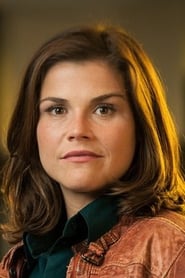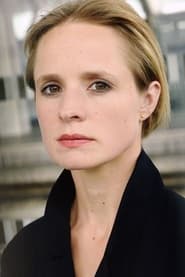
Ask Your Own Question
What is the plot?
In the opening scenes of "Unser Pappa," we are introduced to the main character, a middle-aged man named Paul, who is struggling with the challenges of fatherhood and his own identity. Paul is seen in his modest home, surrounded by the chaos of his three children, each representing different aspects of his life and the pressures he faces. The audience witnesses his attempts to balance work and family life, often leading to moments of frustration and self-doubt.
As the story progresses, Paul receives a call from his estranged father, who he has not spoken to in years. The father, a stern and traditional man, is in poor health and wishes to reconcile. This news stirs a mix of emotions in Paul, including resentment and a longing for approval. He grapples with the decision of whether to visit his father, reflecting on their tumultuous past and the impact it has had on his own parenting.
After much internal conflict, Paul decides to visit his father, taking his eldest son, Max, along for the journey. The road trip is filled with tension as Paul tries to explain the importance of family to Max, while also confronting his own unresolved feelings about his father. The dynamic between Paul and Max highlights the generational differences and the weight of expectations.
Upon arriving at his father's home, Paul is met with a cold reception. The father's health is visibly declining, and the atmosphere is thick with unspoken words. Paul attempts to bridge the gap by sharing stories from his life, but his father remains distant and critical. This confrontation forces Paul to confront his own fears of inadequacy as a father, mirroring the relationship he had with his own dad.
In a pivotal moment, Paul discovers a box of old photographs and letters that reveal his father's struggles and sacrifices. This discovery shifts Paul's perspective, allowing him to see his father as a flawed human being rather than just an authoritarian figure. The emotional weight of this realization leads to a breakthrough in their relationship, as Paul begins to express his feelings of hurt and disappointment.
As the visit continues, tensions rise when Paul's father makes a disparaging remark about his parenting style. This ignites a heated argument, where both men unleash years of pent-up frustration. Paul, feeling cornered, storms out of the house, leaving Max behind. This moment of separation serves as a catalyst for both characters to reflect on their actions and the legacy of their family dynamics.
Max, witnessing the fallout, confronts his grandfather about the harshness of his words. This confrontation is a turning point for the grandfather, who begins to realize the impact of his behavior on his family. The emotional exchange between Max and his grandfather serves to bridge the generational gap, as they find common ground in their shared experiences of feeling misunderstood.
In the climax of the story, Paul returns to his father's home, ready to apologize and mend their relationship. The two men engage in a heartfelt conversation, where they both express their vulnerabilities and regrets. This moment of honesty allows them to finally connect on a deeper level, breaking the cycle of resentment that has plagued their family for years.
The resolution unfolds as Paul returns home with a renewed sense of purpose. He applies the lessons learned from his father to his own parenting, striving to be more present and understanding with his children. The final scenes depict Paul engaging with his kids in a more meaningful way, showcasing the transformation in his character and the hope for a better future for his family.
The series concludes with a poignant moment where Paul reflects on the importance of family, forgiveness, and the complexities of fatherhood. The emotional journey he undertook not only reconciles his relationship with his father but also strengthens his bond with his own children, leaving the audience with a sense of closure and hope.
What is the ending?
In the ending of "Unser Pappa," the story culminates in a poignant resolution where the main character, a father, confronts the realities of his life and relationships. He comes to terms with his past mistakes and seeks to mend the fractured bonds with his family. The emotional climax leads to a heartfelt reconciliation, but it also leaves lingering questions about the future.
As the final scenes unfold, the father stands in his modest living room, surrounded by remnants of his life--family photos, old furniture, and the echoes of laughter and arguments that once filled the space. He reflects on his journey, the struggles he faced, and the love he has for his children. The atmosphere is heavy with nostalgia and regret, yet there is a glimmer of hope as he reaches out to his children, expressing his desire to be a better father.
The story concludes with a family gathering, where the father, his children, and their partners come together for a meal. The tension that once permeated their interactions begins to dissipate as they share stories, laughter, and tears. The father's vulnerability opens the door for healing, and while not all wounds are fully healed, there is a sense of progress and a commitment to moving forward together.
As the final act of "Unser Pappa" unfolds, the scene opens in the dimly lit living room of the father's home. The camera pans slowly across the room, capturing the dust motes dancing in the shafts of light filtering through the curtains. The father, a man in his late fifties, sits on the edge of his worn-out couch, his face etched with lines of worry and regret. He clutches a framed photograph of his family from happier times, his eyes glistening with unshed tears.
In this moment of solitude, he reflects on the choices he made that led to the estrangement from his children. The weight of his past mistakes hangs heavily on his shoulders, and the internal conflict is palpable. He knows he has failed them, but a flicker of determination ignites within him. He stands up, straightening his back as if shedding the burden of his guilt, and resolves to reach out to his children.
The scene shifts to a bustling kitchen where his daughter is preparing a meal. She moves with a mix of frustration and sadness, her hands working quickly but her mind elsewhere. The father enters, and the atmosphere thickens with unspoken tension. He approaches her cautiously, his voice trembling as he apologizes for the years of neglect and misunderstanding. She pauses, her back to him, and the silence stretches painfully before she turns to face him. Her expression is a mixture of anger and longing, and the father can see the hurt in her eyes.
In a moment of vulnerability, he admits his failures and expresses his desire to rebuild their relationship. The daughter, taken aback, softens slightly but remains guarded. She acknowledges the pain but also the love that still exists beneath the surface. This exchange marks a pivotal moment, as the father's honesty begins to crack the walls that have kept them apart.
The narrative then transitions to a family gathering, where the father has invited his children and their partners for dinner. The table is set with care, a stark contrast to the emotional turmoil that has defined their interactions for so long. As the family arrives, the atmosphere is charged with a mix of anticipation and apprehension. The father stands at the door, his heart racing as he greets each of them, his smile genuine yet tinged with anxiety.
As they sit down to eat, the initial awkwardness is palpable. Conversations start off stilted, with forced smiles and polite exchanges. However, as the meal progresses, the father takes a deep breath and shares a story from his own childhood, a moment of vulnerability that resonates with his children. Laughter begins to fill the room, breaking the ice that has long frozen their relationships.
The camera captures the gradual transformation of the atmosphere; the children begin to share their own stories, revealing their struggles and triumphs. The father listens intently, his heart swelling with pride and regret as he realizes how much he has missed. The emotional walls begin to crumble, and the family starts to reconnect in ways they thought were lost forever.
As the evening draws to a close, the father stands to make a toast. His voice trembles with emotion as he expresses his gratitude for their presence and his hope for the future. He acknowledges the pain of the past but emphasizes the importance of moving forward together. Tears glisten in the eyes of his children, and in that moment, they understand that healing is a journey, not a destination.
The final scene fades out with the family gathered around the table, laughter echoing in the background. The father looks around, a sense of peace washing over him as he realizes that while the road ahead may be challenging, they are willing to walk it together. The screen fades to black, leaving the audience with a sense of hope and the understanding that love, though tested, can endure and flourish.
Is there a post-credit scene?
"Unser Pappa," produced in 2001, does not feature a post-credit scene. The show concludes its episodes without any additional content after the credits roll. The narrative wraps up within the episode itself, focusing on the emotional and comedic arcs of the characters, particularly the father figure navigating the complexities of family life and relationships. Each episode typically ends on a note that ties up the central theme or conflict presented, leaving viewers with a sense of closure rather than teasing future developments.
What are the main conflicts faced by the character of Pappa throughout the series?
Pappa, the central character, faces numerous conflicts that revolve around his role as a father and a husband. He struggles with balancing his responsibilities at home with his desire for personal freedom and fulfillment. His relationship with his children is often strained as they navigate their own lives, leading to emotional confrontations that reveal Pappa's deep-seated fears of inadequacy and failure as a parent.
How does Pappa's relationship with his wife evolve over the course of the series?
Pappa's relationship with his wife is marked by tension and moments of tenderness. Initially, they share a strong bond, but as the series progresses, the pressures of family life and Pappa's personal struggles create rifts. Key scenes depict their arguments over parenting styles and financial stress, but they also have poignant moments of reconciliation that highlight their enduring love and commitment to each other.
What role do Pappa's children play in shaping his character development?
Pappa's children are pivotal in his character development, serving as mirrors to his own insecurities and aspirations. Each child represents different aspects of his personality and challenges him in unique ways. For instance, his rebellious teenage daughter often clashes with him, forcing Pappa to confront his outdated views on youth and independence, while his younger son looks up to him, prompting Pappa to strive to be a better role model.
What significant events lead to Pappa's moments of self-reflection?
Throughout the series, several significant events prompt Pappa to reflect on his life choices. A pivotal moment occurs when he faces a health scare, leading him to reevaluate his priorities and relationships. Additionally, family gatherings and crises, such as a child's graduation or a marital anniversary, serve as catalysts for Pappa to confront his fears and desires, often resulting in emotional breakthroughs.
How does the setting influence the dynamics of Pappa's family life?
The setting of the series, a suburban neighborhood, plays a crucial role in shaping the dynamics of Pappa's family life. The close-knit community creates a backdrop for both support and pressure, as Pappa navigates the expectations of neighbors and friends. Scenes set in local parks, schools, and homes illustrate the contrast between the idyllic appearance of suburban life and the underlying struggles Pappa faces, enhancing the emotional depth of the narrative.
Is this family friendly?
"Unser Pappa," produced in 2001, is a German television series that revolves around family dynamics, particularly focusing on the relationship between a father and his children. While the show primarily aims to depict familial love and the challenges of parenting, there are several aspects that may be considered objectionable or upsetting for children or sensitive viewers.
-
Parental Conflict: The series includes scenes of conflict between parents and children, which may evoke feelings of tension or discomfort, especially for younger viewers who may not fully understand the complexities of adult relationships.
-
Emotional Struggles: Characters often face emotional struggles, including feelings of inadequacy, disappointment, and frustration. These themes can be heavy and may resonate deeply with sensitive viewers.
-
Realistic Depictions of Life Challenges: The show addresses real-life issues such as financial difficulties, career pressures, and the stress of raising children. These situations can be stressful and may not be suitable for all children.
-
Mature Themes: There are moments that touch on themes of loss, betrayal, and the challenges of growing up, which may be difficult for younger audiences to process.
-
Mild Language: The dialogue may include mild language or expressions that some parents might find inappropriate for children.
Overall, while "Unser Pappa" is not overtly graphic or violent, its exploration of complex emotional and familial themes may require parental guidance for younger viewers.

















